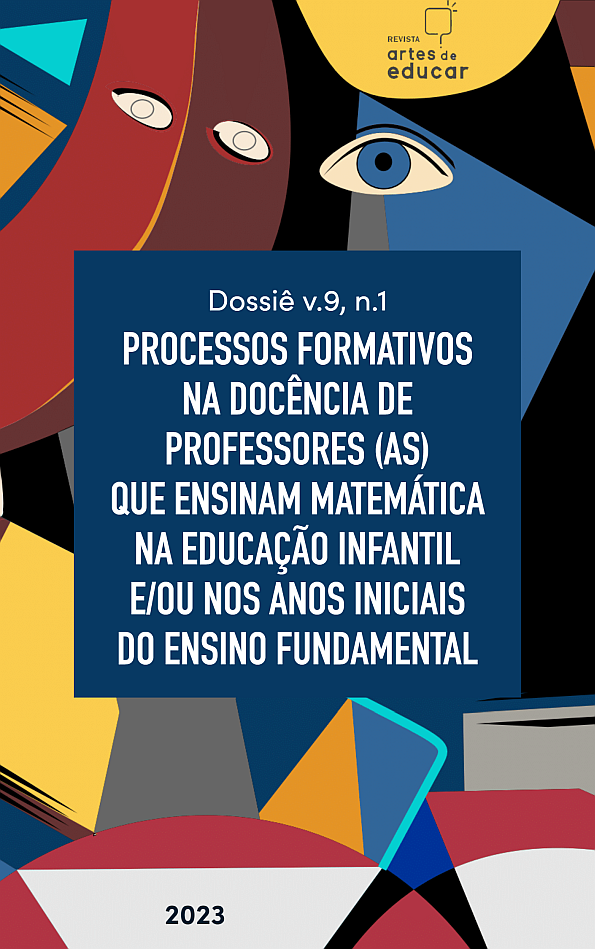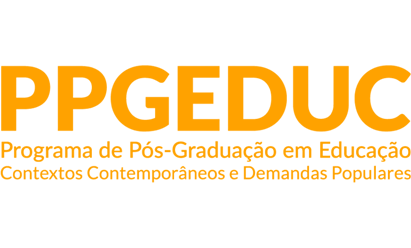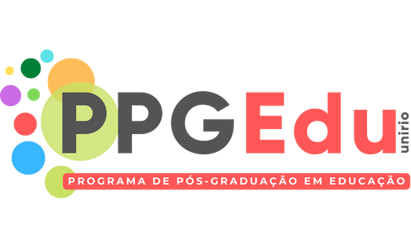INSTRUMENTO AVALIATIVO DE OBJETOS DIGITAIS DE APRENDIZAGEM PARA A MATEMÁTICA: A USABILIDADE EM FOCO
DOI:
https://doi.org/10.12957/riae.2023.70472Palabras clave:
Objetos Digitais de Aprendizagem, Tecnologias Digitais, Matemática, Anos Iniciais do Ensino Fundamental, Educação Básica.Resumen
Os Objetos Digitais de Aprendizagem (ODA) estão disponíveis em repositórios e são utilizados pelos professores nas aulas de matemática dos anos iniciais do Ensino Fundamental (ALEXANDRE, 2015). Todavia não havia um instrumento avaliativo para a avaliação sistemática dos ODA, por isso após a elaboração de um instrumento avaliativo, as questões que realizamos são: o que pensam os professores e futuros professores sobre o instrumento? Facilita a seleção dos ODA? Oferece uma orientação em relação ao potencial que o ODA possui e o que pode ser ampliado conforme a utilização? Neste viés, o objetivo deste estudo consiste em testar a usabilidade do instrumento avaliativo de ODA e promover reflexões mediante as perspectivas dos participantes. Realizamos a testagem de usabilidade de um instrumento por meio de três oficinas de formação inicial e continuada que contou com 44 participantes. Os resultados apontam a importância do instrumento para conhecimento da qualidade do ODA em seus aspectos pedagógicos; a necessidade de parcerias para o aprimoramento da acessibilidade do instrumento aos professores de diferentes realidades; a ampliação da temática nas formações iniciais e continuadas e reflexões indispensáveis para o contexto atual.Citas
ALEXANDRE, Mariana dos Reis. A prática curricular e as tecnologias nas escolas municipais e estaduais: desafios e possibilidades. 2015. 120f. Trabalho de Conclusão de Curso (Pedagogia) - Universidade Estadual Paulista, Bauru, 2015.
______. Um estudo sobre Objetos Digitais de Aprendizagem no processo de alfabetização e letramento. 2017. 145f. Dissertação (Mestrado Profissional em Docência para a Educação Básica) – Faculdade de Ciências, Universidade Estadual Paulista, Bauru, 2017.
ALEXANDRE, Mariana dos Reis; BARROS, Daniela Melaré Vieira. Objetos digitais de aprendizagem e os estilos de uso do virtual: estreitando relações e construindo diálogos. Indagatio didactica. vol. 12, n. 5, p. 207-234, dez. 2020.
______. Indicadores pedagógicos: contribuição à avaliação de Objetos Digitais de Aprendizagem. In: MALLMANN, E. M.; ALBERTI, T. F.; REGINATTO, A. A. (Org.). Formação de professores: políticas públicas e tecnologias educacionais. v. 2. São Paulo: Pimenta Cultural, 2021, p.61-84.
ANASTASI, Anne; URBINA, Susana. Testagem psicológica. Porto Alegre: Artmed, 2000.
BARROS, Daniela Melaré Vieira. Estilos de aprendizagem e estratégias para a personalização e inclusão na era digital. In: VIANA, Helena Brandão; SOUZA, Dayse Neri de; SOUZA, Francislê Neri de. (Org.). Novas tecnologias e novas práticas educacionais. 1. ed. São Paulo: Unaspress, 2019, p.57-82.
______. Didática e estilos de uso do virtual para a Educação a Distância. Revista diálogo educacional, Curitiba, v. 20, n. 64, p. 123-142, 2020.
BORBA, Marcelo Carvalho; SILVA, Ricardo Scucuglia Rodrigues da; GADANIDIS, George. Fases das tecnologias digitais em Educação Matemática: sala de aula e internet em movimento. Belo Horizonte: Autêntica, 2014.
BRAGA, Juliana; MENEZES, Lilian. Introdução aos Objetos de Aprendizagem. In: BRAGA, Juliana (Ed.). Objetos de Aprendizagem volume 1: introdução e fundamentos. Santo André: UFABC, 2015, p.19-40.
CIEB. Orientações para seleção e avaliação de conteúdos e recursos digitais. 2017. Disponível em: <https://cieb.net.br/cieb-notas-tecnicas-5-orientacoes-para-selecao-e- avaliacao-de-conteudos-e-recursos-digitais/>. Acesso em: 08 fev. 2022.
GIL, Antônio Carlos. Métodos e técnicas de pesquisa social. 6. ed. São Paulo: Atlas, 2008.
______. Como elaborar projetos de pesquisa. 6. ed. São Paulo: Atlas, 2019.
______. Como fazer pesquisa qualitativa. 1. ed. Barueri: Atlas, 2021.
GÓMEZ, Ángel Pérez. Educação na era digital: a escola educativa. Porto Alegre: Penso, 2015.
MEIRA, Luciano; BLINKSTEIN, Paulo. (Org.). Ludicidade, jogos digitais e gamificação na aprendizagem: estratégias para transformar as escolas no Brasil. Porto Alegre: Penso, 2020.
OLIVEIRA, Édison Trombeta de. et al. O design thinking na educação em engenharia da UNIVESP: possibilidades de aprendizagem ativa. XLIII Congresso Brasileiro de educação em engenharia, set., 2015, p.1-9.
OLIVEIRA, Tânia Modesto Veludo de. Escalas de Mensuração de Atitudes: Thurstone, Osgood, Stapel, Likert, Guttman, Alpert. Administração On Line, v. 2, n. 2, p.1-21, abr./mai./jun. 2001.
PASQUALI, Luiz. Psicometria: teoria e aplicações: a teoria clássica dos testes psicológicos. Brasília: Universidade de Brasília. 1997.
______. Instrumentação psicológica: fundamentos e práticas. Porto Alegre: Artmed, 2010.
SILVA, Keila Crystyna Brito; SOUZA, Ana Cláudia Ribeiro. MEPE: Metodologia para elaboração de produto educacional, 2018, 32 f. Produto educacional (Mestrado Profissional em Ensino Tecnológico) – Instituto Federal de Educação, Ciência e Tecnologia do Amazonas, Manaus, 2018.
REBOUÇAS, Ayla Dantas; MAIA, Dennys Leite; SCAICO, Pasqueline Dantas. Objetos de Aprendizagem: da definição ao desenvolvimento, passando pela sala de aula. In: Informática na educação: ambientes de aprendizagem, objetos de aprendizagem e empreendedorismo. Porto Alegre: Sociedade Brasileira de Computação, 2021. Disponível em: <http://ieducacao.ceie-br.org/objetos-aprendizagem>. Acesso em: 25 jan. 2023.
TAJRA, Sanmya Feitosa. Informática na educação: o uso de tecnologias digitais na aplicação das metodologias ativas. 10. ed. São Paulo: Editora Érica, 2018.
TEZANI, Thaís Cristina Rodrigues; ALEXANDRE, Mariana dos Reis. O uso dos objetos digitais de aprendizagem na alfabetização: contribuições à prática pedagógica. In: CORTELA, Beatriz; BASTOS, Fernando; GATTI, Sandra. (Org.). Cadernos de docência na Educação Básica 7. Políticas educacionais, formação de professores e prática pedagógica: contribuições da pesquisa. São Paulo: Cultura acadêmica, 2020, p.61-78.
THOMAS, Jerry; NELSON, Jack; SILVERMAN, Stephen. Research methods in physical activity. 3. ed. Champaign: Human Kinetics, 1996.
URBINA, Susana. Fundamentos da testagem psicológica. Porto Alegre: Artmed, 2007.
Publicado
Cómo citar
Número
Sección
Licencia
Derechos de autor 2023 Revista Interinstitucional Artes de Educar

Esta obra está bajo una licencia internacional Creative Commons Atribución-NoComercial 4.0.
Los autores conservan los derechos de autor de su trabajo, pueden publicar y distribuir su trabajo en línea (por ejemplo, en repositorios institucionales o en su página personal) en cualquier momento antes o durante el proceso editorial, ya que esto puede generar cambios productivos, así como aumentar la impacto y citación del trabajo publicado.
La aceptación del texto implica la autorización y exclusividad de la Revista Interinstitucional Artes de Educar en cuanto al derecho de primera publicación, las obras publicadas son licenciadas simultáneamente con una Licencia Creative Commons Atribución-No Comercial 4.0 Internacional 























